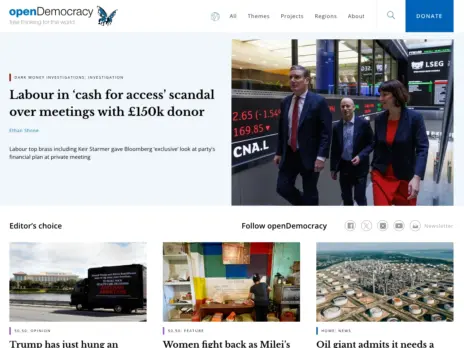
In a recent international media seminar, one speaker stressed the potential role of cell phones and the internet in general and texting and tweeting in particular as dynamic new elements of ‘breaking news’citizens journalism across the globe. But he had not imagined the revolutionary role of SMS, Twitter and Facebook in triggering and sustaining democratic political change in closed and repressive societies.
We witnessed this phenomenon in Pakistan two years ago when thousands of young lawyers and civil rights activists armed with furiously tweeting cell phones galvanized the media and public to overthrow a military dictator and help install an independent judiciary.
More recently, the new citizen’s media has unleashed the most significant revolutionary upheaval in the Middle-East since the revolutions of the 18th and 19th century changed the balance of power in Europe. The best part of these new media tools is that they are cheap, universal, pro-democracy, pro-freedom and pro-liberty. Indeed, not since the printing press was invented and the word became free locally has such a swift transformation of the force of the Word taken place so globally. An era of citizen journalism and free media is upon us and this will have far-reaching consequences for democracy and accountability.
But the news about the new media is not universally positive. Two examples from South Asia explain why it can sometimes become part of the problem rather than the solution.
The Niira Radia Tapes case in India last year revealed an unholy nexus between big businessmen, powerful politicians, manipulative lobbyists and influential journalists.
“Particularly disturbing were the moves to use media persons for help to influence decisions by the government and leadership of the ruling dispensation on crucial issues like the composition of the Union Cabinet,” remarked media watchdog South Asia Media Commission.
No less disturbing were determined efforts by mainstream media to block the story.
Initially, only a handful of mainstream newspapers covered it and commented on it. Others skirted the issue. “The authenticity of these transcripts cannot be ascertained”, they said. One senior TV anchor assembled a panel of experts on a popular nationwide program to discuss whether corporate lobbying was undermining democracy but chose to play safe by avoiding the crux of the matter and not naming names.
The news only gained prominence following sustained pressure on social networking sites Twitter and Facebook against the mainstream print and TV media blackout. When the scandal began trending as number one topic on Twitter in India, the Washington Post remarked: “Twitter has played an important role in launching what has become an international conversation on the issue, with the Indian diaspora weighing in”. In the event, the Radia tapes made a big dent in the image of the media in the country.
Pakistan’s powerful media has also opposed the war against Al-Qaeda and the Taliban waged by the West despite a formal strategic relationship between Pakistan and the USA endorsed by the mainstream political parties and the military establishment of the country.
Most journalists insist that this is America’s war and not Pakistan’s war and argue that if American troops were to withdraw from Afghanistan, the Taliban and Al-Qaeda would simply melt away. ‘No Muslim can commit acts of terrorism against fellow Muslims”, they insist.
Such misplaced thinking is a result of three decades of enforced Islamisation in the body politic and education system of the country during the US-Pak sponsored jihad against the USSR in the 1980s, followed by the rise of anti-Americanism in Pakistan after the US exited from the region in 1989 at the end of the cold war and heavily sanctioned Pakistan for continuing to develop nuclear weapons.
The situation is alarming not only because it serves to nurture and sustain terrorism in the country but also because the passion and outrage is often directed at liberal and secular journalists in the country who don’t subscribe to the Pan-Islamist views of their colleagues. Allegations of ‘CIA agents’and ‘American Spies’in the vernacular media echo no less frequently than similar charges in the Al-Qaeda-Taliban theatre of war in North Waziristan where such targeted people are routinely attacked, beheaded and butchered. Increasingly, the Pakistani media is becoming a non-state political actor with passionate likes and dislikes in aggressively shaping domestic and foreign policy, including attempts at destabilizing economy and electoral politics by advocating ‘regime change’and ‘bloody Islamic revolution”.
All these contradictory manifestations of the new media are, however, inevitable consequences of the rise of new media technologies, sudden winning of media freedoms and proliferation of satellite and cable television. In time to come, they will surely be tempered by the demands of the economy and democracy and learn to become as responsible and accountable as the other pillars of the modern nation state.
Email pged@pressgazette.co.uk to point out mistakes, provide story tips or send in a letter for publication on our "Letters Page" blog






